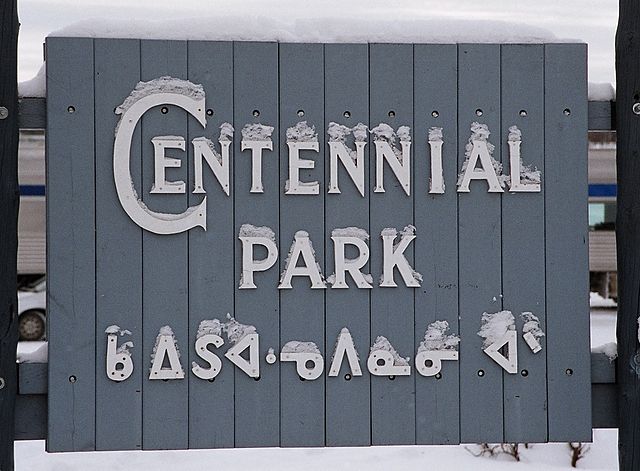Ojibwe is an indigenous language of North America from the Algonquian language family. Ojibwe is one of the largest Native American languages north of Mexico in terms of number of speakers and is characterized by a series of dialects, some of which differ significantly. The dialects of Ojibwe are spoken in Canada from southwestern Quebec, through Ontario, Manitoba and parts of Saskatchewan, with outlying communities in Alberta and British Columbia, and in the United States from Michigan through Wisconsin and Minnesota, with a number of communities in North Dakota and Montana, as well as migrant groups in Kansas and Oklahoma.
A sign in Sioux Lookout, Ontario, with Ojibwe syllabics. The partially pointed syllabics text says ᑳᐃᔑᐊᓉᐱᓈᓂᐗᐣᐠ (Gaa-izhi-anwebinaaniwang, "the place where people repose"; unpointed as ᑲᐃᔑᐊᓉᐱᓇᓂᐧᐊᐠ), but with the ⟨ᐧ⟩ w missing from the last syllable.
Ojibwe, also known as Ojibwa, Ojibway, Otchipwe, Ojibwemowin, or Anishinaabemowin, is an indigenous language of North America of the Algonquian language family. The language is characterized by a series of dialects that have local names and frequently local writing systems. There is no single dialect that is considered the most prestigious or most prominent, and no standard writing system that covers all dialects.
Ontario Heritage Plaque in Ojibwe at the Battle of the Thames historical site
A sign at Lakehead University in English and Ojibwe
Names of the Great Lakes and surrounding regions in Ojibwe




